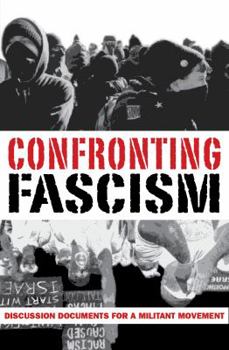Confronting Fascism: Discussion Documents For A Militant Movement
The struggle against fascism is a widely accepted part of the revolutionary struggle, but even the most radical activists often sound like liberals when explaining the hows and whys of anti-fascism. Or else use the word in such a way that it has only a vague meaning as something very evil (fascist cops, fascist cutbacks, fascist State repression, etc.) .The essays in Confronting Fascism are an attempt to grapple with this situation. Breaking with established Left practice, this book attempts to deal with the questions of fascism and anti-fascism in a serious and non-dogmatic manner. Attention is paid to to the class appeal of fascism, its continuities and breaks with the "regular" far-right and also even with the Left, the ways in which the fascist movement is flexible and the ways in which it isn't. Left failures, both in opposing fascism head-on, and also in providing a viable alternative to right-wing revolt, are also dealt with at length.The lived experiences of anti-fascist activists inform this work, and more attention is paid to actual historical developments and facts than to neat theories that explain everything but only coincidentally intersect with reality. Understanding the relationship of fascism, the State, left reformism and what it means to be revolutionary are priorities in a world where it seems increasingly true that those who do not advance will have to retreat.





